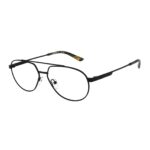1win Официальный ресурс Букмекерской Конторы с Целью Ставок На Спорт
Чтобы получить доступ ко всем возможностям 1Вин casino, игроку нужно зайти в аккаунт. Aviator – это многопользовательская забава, поэтому при помощи специальных инструментов посетитель может наблюдать за единица, сколько игроков вошло в тур и какие ставки они сделали. Часто игроками 1Win казино запускается и видеослот Авиатор. Описание Букмекерской Конторы 1win При первом знакомстве с букмекером […]



